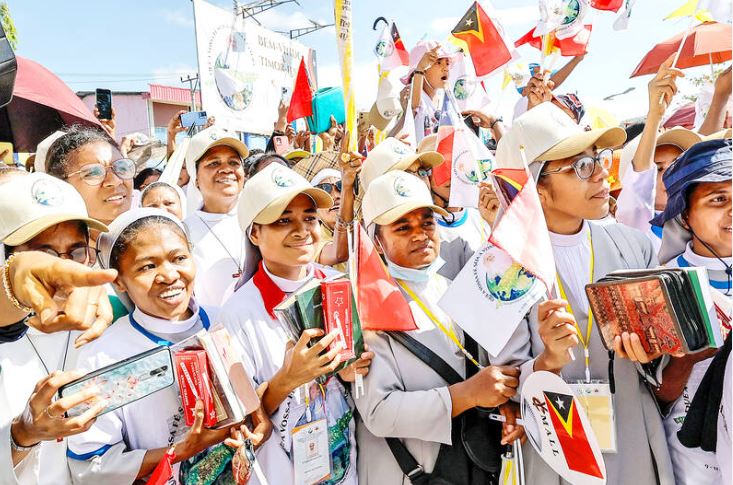Dili/Timor-Leste: Pope Francis has made a powerful appeal for the protection of young people during his visit to Timor-Leste, part of his ongoing tour of Southeast Asia and Oceania. Upon his arrival in the capital, Dili, on Monday, the Pontiff delivered a poignant message to officials, emphasizing the need to remember and safeguard the dignity of children and adolescents. "Let us not forget the many children and adolescents whose dignity has been violated," he stated, as reported by BBC News. Photo Credits: BBC News
He further emphasized the importance of safeguarding youth, urging everyone to do "everything possible to prevent every kind of abuse and guarantee a healthy and peaceful childhood for all young people."
The Pope's visit to Timor-Leste, the only Catholic-majority country on his 12-day Asia-Pacific tour, holds significant cultural and religious importance. Timor-Leste, formerly known as East Timor, achieved independence from Indonesia two decades ago after a long and brutal struggle. During his speech, Pope Francis praised the nation's resilience and commitment to peace.
"We give thanks to the Lord, since you never lost hope while going through such a dramatic period of your history, and after dark and difficult days, a dawn of peace and freedom has finally dawned," the Pope said.
The Pontiff's arrival was met with overwhelming enthusiasm, as tens of thousands of devotees lined the streets, waving flags and cheering as he travelled in an open-top car surrounded by security. The highlight of his visit is expected to be an open-air mass near Dili, where around 700,000 people—more than half of Timor-Leste's population—are anticipated to attend.

Pope Francis' visit to Timor-Leste comes 35 years after Pope John Paul II's visit in 1989, during a time when the country was still under Indonesian occupation. The Catholic Church has played a significant role in the nation's history, especially during the occupation, when it stood as a protector of human rights and a symbol of resistance.
The visit also has broader implications beyond religion. It is seen as a symbol of peace and reconciliation, particularly in the context of Timor-Leste's relationship with neighbouring Indonesia. The event has been organized with the involvement of Indonesian Muslim leaders, underscoring its significance for promoting mutual understanding between different religious communities.
Diplomatically, the visit is also significant for Timor-Leste's international relations. Pope Francis’ presence is seen as an endorsement of the country’s progress and a call for continued reconciliation and unity. The visit is being closely watched by international observers, including Australia, which views the event as a major milestone since Timor-Leste's restoration of independence in 2002.
The Pope's tour will conclude later this week in Singapore, marking the end of a journey that has been both a spiritual mission and a statement on social justice and the importance of protecting the vulnerable.